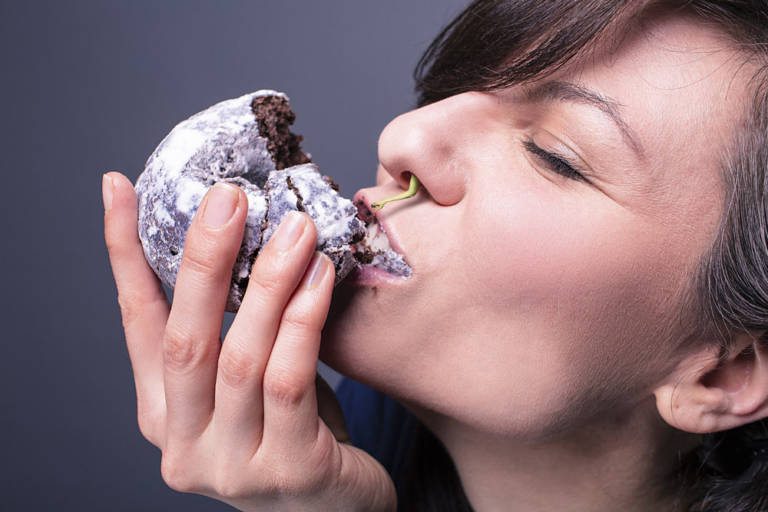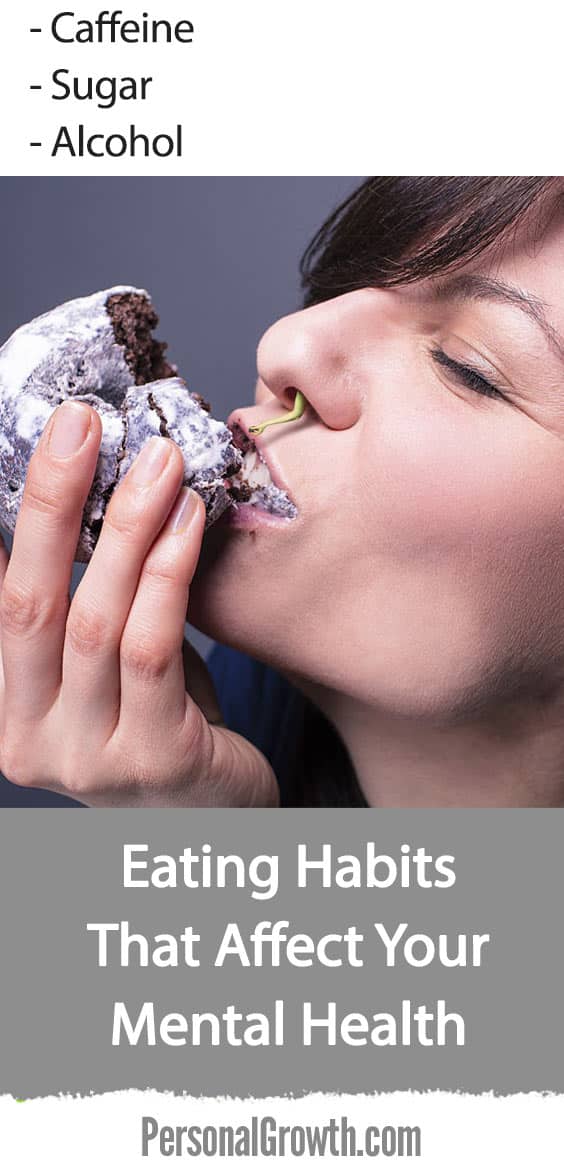

We all know that a healthy diet leads to a healthy body, but we don’t talk as much about the fact that it also leads to a healthy mind. Most people know that eating too much sugar or caffeine can lead to anxiety or fatigue-related depression, but they aren’t the only culprits.
If you’re suffering from anxiety or depression, read on to learn the foods and habits that may be responsible; then cut back on them so that you feel better.
Always Reaching For The Caffeine
There’s a good chance that you already know that the coffee jitters can make you nervous, but it bears repeating. If you come to depend on multiple cups of coffee in order to keep yourself awake during the day, you’ve fallen victim to society’s most socially acceptable drug addiction; make no mistake, caffeine is a psychoactive stimulant that simply has fewer obvious negative side effects than other drugs.
According to the Mayo Clinic, four cups of coffee (or 400 mg of caffeine) is the maximum safe amount. If you consume more than that, you run the risk of mental health side effects like nervousness, restlessness, and irritability (as well as physical effects like tremors and upset stomach).
However, the Mayo Clinic also points out that some people are more susceptible to the effects of caffeine than others, so if you find yourself getting jittery after just two cups, ignore the expert advice that four cups are fine and cut back anyway.
Caffeine can also cause insomnia, making you more tired and irritable during the day and increasing your dependence on caffeine.
Bingeing On Sugar (And Other Simple Carbs)
Serotonin is one of the most important brain chemicals for your mood, and sugar can wreak havoc with it. According to Psychology Today, too much serotonin can make you hyperactive and aggressive, while too little can make you depressed and anxious. When your serotonin levels are just right, a good mood results.
The problem is that sugar and other simple carbs give you a temporary boost in serotonin, giving you that serotonin-glutted “sugar high” feeling when you first eat it and then causing your body to crash into depression when its unnaturally high levels of serotonin eventually ebb away.
Although we need some carbs to properly process serotonin at all, eating too many simple carbs can turn you into a sugar junkie, craving that serotonin rush as your brain goes through withdrawal.
Drinking Too Much Alcohol
Drinking too much alcohol has a host of physical health effects, but it can also affect your brain and your mental health.
According to the National Institute of Health, MRIs and animal studies have shown that drinking too much alcohol can actually cause your brain to shrink.
The best known negative effects are the “dead brain cells” in the cerebellum and cerebral cortex, which can permanently impair your coordination and your ability to make long-term plans. But alcohol also slowly destroys your limbic system, which helps you to regulate emotion.
Alcohol can also wreak havoc with your neurotransmitters, which can cause depression and agitation, because one of the neurotransmitters that alcohol targets is our old friend serotonin, while another is endorphins (the neurotransmitter that gives you a rush of euphoria after exercising).
Eating Trans Fats
You’ve heard about how trans fats are, by far, the worst kind of fat for your heart. What may be more surprising is that trans fats are also bad for your brain and your mood.
In a 2011 study, researchers divided participants into four groups and asked each group to eat large amounts of one of the four different kinds of fat: saturated, monounsaturated, polyunsaturated, and trans fat.
The study showed that people who ate trans fat had a 48% higher risk of depression than people who ate saturated or polyunsaturated fat. (The participants who ate monounsaturated fat – the kind found in olive oil – actually had a much lower risk of depression than the others.)
With so many foods touting the fact that they’re free of trans fats and so few disclosing that they have them, it can be hard to see where trans fats are and cut them from your diet.
The Cleveland Clinic recommends avoiding ready-made biscuits, frosted cakes and pies, breakfast sandwiches, crackers, microwave popcorn, frozen pizza, fried fast food, donuts, cream-filled candies, and anything with “partially hydrogenated oils” on the label.
Don’t be fooled by foods that contain these oils but claim to have 0 grams of trans fat; foods are allowed to say that as long as they contain less than 0.5 grams per serving, and with snacking foods like crackers and cookies, those fractions of a gram can add up fast.
Eating The Wrong Breakfast (Or Skipping It!)
Breakfast really is the most important meal of the day. Eating breakfast helps to keep away the grumpy feeling that naturally sets in when you’re feeling hungry and can give you a much-needed early morning boost in energy.
Studies have linked a healthy breakfast to improved alertness, better brain functioning, and a more positive mood.
Of course, this could backfire if you eat the wrong breakfast; a cereal loaded with simple carbs will give you all the negative effects that come with eating too much sugar, while a breakfast sandwich or doughnut could deliver a load of mood-killing trans fats.
Not Getting Enough Omega-3s
As mentioned before, a study has suggested that olive oil and other monounsaturated fats can have a positive effect on mood, while polyunsaturated and saturated fat have no effect on it for better or worse.
There’s one important exception to this, however: omega-3 fatty acids, a type of polyunsaturated fat that actually can improve your mood.
A 1998 study showed that people with depression have lower levels of omega-3s than people without it; the lower the omega-3 levels, the more severe the depression.
A later group of three studies showed that people with depression or bipolar disorder who took omega-3 supplements showed more improvement than people who took a placebo.

flaxseed oil, chia seeds, walnuts, soybeans, and spinach.
Not Eating Vitamins B And D
Omega-3s aren’t the only foods that can help boost your mood. B-vitamins, particularly vitamin B-12, help your brain to produce neurotransmitters, and studies have shown a connection between B-vitamin deficiency and depression.
You can take a vitamin B-12 supplement to boost your mood, but the Mayo Clinic recommends getting the vitamins naturally through food sources like fish, lean meat, eggs, and fat-free milk.
A vitamin D deficiency can cause depression-like symptoms as well. Although the best-known source of vitamin D is sunshine, you can get it naturally from dietary sources like fish and eggs, and orange juice and milk are frequently fortified with it as well.

